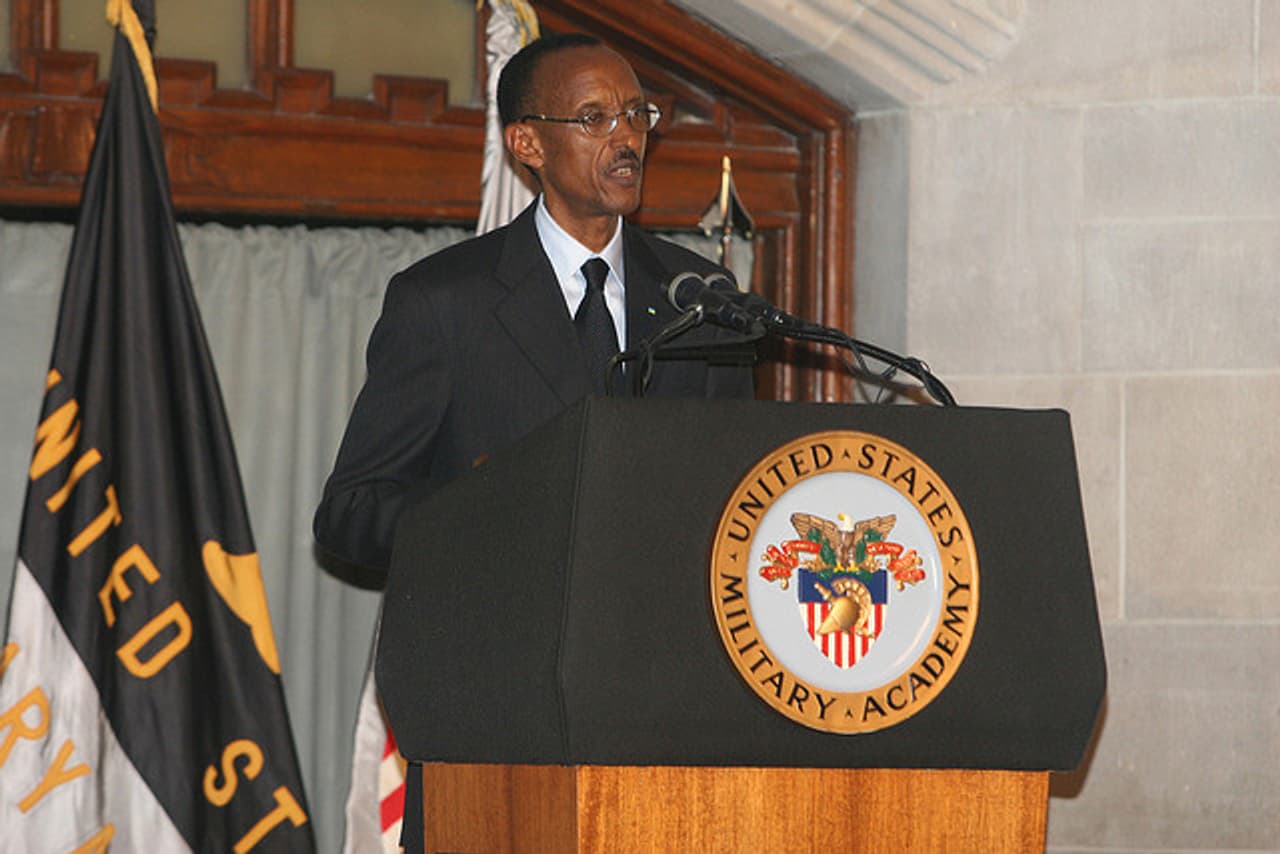
PR firm ‘attacked’ critics of Rwandan government
Paul Kagame, President of the government of Rwanda
A public relations firm whose senior management have close links to the Liberal Democrats said it had created an internet ‘attack site’ for the government of Rwanda to counter accusations that it had been involved in genocide.
Mark Pursey, head of BTP Advisers, was secretly recorded as part of the Bureau’s investigation into lobbying and PR, saying that the site was targeted at those who ‘over-criticised’ over ‘who did what in the genocide’.
A 2009 report from the Commonwealth Human Rights Initiative said Rwanda’s ‘excellent public relations machinery’ had succeeded in hiding ‘the exclusionary and repressive nature of the regime’.
Mr Pursey, who was head of the Lib Dems’ National Media Intelligence Unit during the 2010 election, suggested his firm could create a similar site for the government of Uzbekistan.
Such a site, he added, could be ‘aggressive in terms of putting across facts and figures showing that things were moving in the right direction’.
If I wanted an easy life I’d do PR for housing associations.
Mark Pursey, BTP Advisers
He said: ‘If people are using child labour in Uzbekistan to pick cotton, and it’s true, then there’s no point in denying it. We have to look to show, as you said yourself, how the government is changing the law, is trying to crack down on it, is moving in the right direction and show real, tangible results about that.’
Reporters from the Bureau posed as agents for the government of Uzbekistan and representatives of the country’s cotton industry. In Uzbekistan, child labour is used in cotton fields to fulfil state quotas and the country also has a terrible human rights record.
Related article: How the Bureau investigated Bell Pottinger
Mr Pursey said his company was working for the government of Azerbaijan, which he described as having ‘its own set of very complex issues’.
He later added: ‘If I wanted an easy life I’d do PR for housing associations.’
An ‘attack site’
As well as setting up an internet site ‘like an Uzbek factcheck about the industry’, Mr Pursey suggested the firm could also create an ‘attack site’ aimed at critics.
‘We haven’t written you a proposal or anything else but I think there are several things that we would want to do to start,’ he said.
‘I think articles saying how marvelous everything is, is jumping the gun because it’s not true and [people] won’t accept it. So I think that things such as working through the internet, setting up things like an Uzbek factcheck about the industry, could be a resource for people online that could render better articles.
‘Then a separate site, this is a similar sort of work we’ve done with the Rwandans, for instance. We had a very controversial issue over who did what in the genocide. So the second site being much more a kind of attack site on people who over-criticise.’
Mr Pursey also suggested recruiting Uzbek students, ‘a team of people who are genuinely, really blogging. It’s not fictional. It’s real.’ This group would be used to comment on an online article critical of the regime.
He added that this could affect newspaper coverage.
A positive spin
‘Once we’ve started to nudge up some of the stories to become not so damning, more positive, then we can start looking at addressing issues such as going to the newspapers and saying “Look, you can now see, can’t you, that things are – that people are saying rather different things about this issue than they were six months ago”.’
Mr Pursey told the Bureau yesterday: ‘We helped create a site that outlined facts about the government of Rwanda and most governments have them.’
I think articles saying how marvelous everything is, is jumping the gun because it’s not true and they (people) won’t accept it.
Mark Pursey
On the company’s work in Azerbaijan, Mr Pursey said: ‘An issue such as the conflict in Nagorno-Karabakhk, that cost 80,000 lives and the internal displacement of over 1 million refugees, is one of these very complexities, yet rarely reported. Rebuilding the lives and families of the survivors has been a massive financial and social challenge and one that should be given the understanding and support it deserves, including in the media.’
During the meeting Edward Lord OBE, a member of the City of London Corporation and Lord Kilclooney’s staff, was introduced by Mr Pursey as another partner in the business. Both men subsequently clarified that Mr Lord was not a BTP Partner and had no financial relationship with the firm, but had been invited by Mr Pursey to support him in making his pitch. Mr Lord has since said, with hindsight, he should not have attended the meeting.




